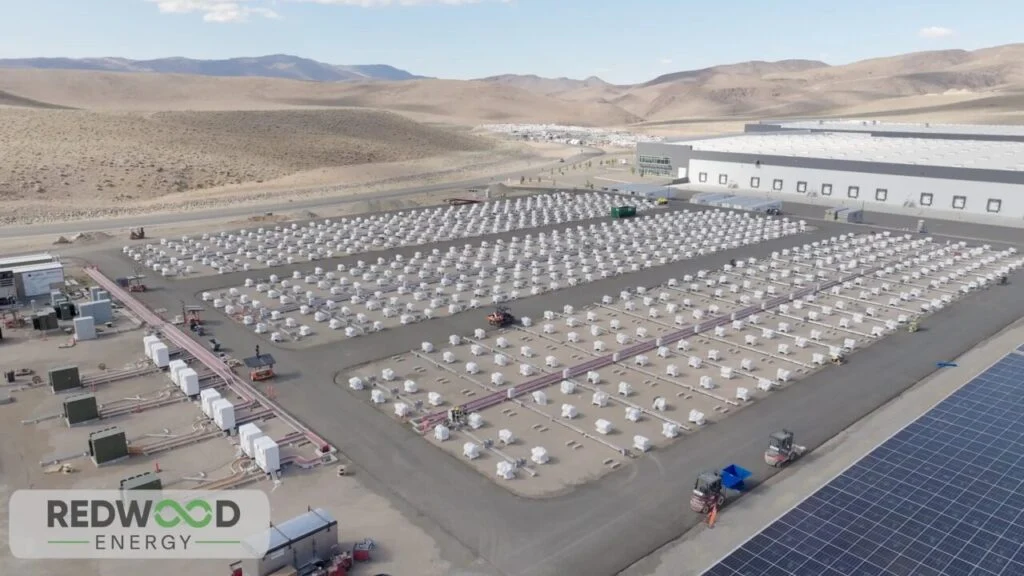Ex-Tesla CTO’s battery recycling and materials company Redwood Materials has launched a new business unit to repurpose second-life EV batteries for energy storage.
Redwood Materials, launched by former Tesla CTO JB Straubel, through its new offering, Redwood Energy, has entered into a strategic partnership with Crusoe, a vertically-integrated AI infrastructure provider, to develop a microgrid powered by large-scale solar and second-life EV batteries.
Redwood says that it receives over 20GWh of batteries annually, representing about 90% of all lithium-ion batteries and battery materials recycled in North America, equivalent to 250,000 EVs.
Many of these retain over 50% useable capacity—the same underpins UK business Connected Energy, which also repurposes second-life EV batteries for energy storage purposes, likewise Alleye Energy—and Redwood launched the Redwood Energy division to offer low-cost, large-scale energy storage systems (ESS).
It says it has over a gigawatt-hour of reusable batteries in its deployment pipeline and is already designing projects 100MW+ in size.
The first deployment comes in the form of a 12MW/63MWh capacity microgrid, the largest deployment of second-life batteries globally and largest microgrid in North America, delivered in partnership with Crusoe.
The microgrid powers an AI data centre for Crusoe, which has built data centre campuses including a 1.2GW site in Abilene, Texas (part of the US$500 billion Stargate project) as well as modular data centres for advanced computing in remote oil fields.
According to a report by the US Department of Energy, data centres could consume 12% of US electricity by 2028. With projects including Stargate due to come online in Texas in the coming years, the electricity grid faces increasing strain. Our sister site, Energy-Storage.News, has explored how battery energy storage systems (BESS) can aid this.
Second-life batteries in energy storage
Redwood estimates that over 5 million EVs are active on US roads, representing an estimated 350 GWh of energy that will reach end-of-life in the coming years; it states over 100,000 EVs will come off US roads this year alone (this all stands to change under the reconciliation bill currently being voted on in the Senate).
According to the firm, combined with 150GWh entering the commercial fleet annually, EV batteries could supply 50% or more of the entire energy storage market.
When a battery is considered to have depreciated beyond use in an EV, it still has enough life to power other applications. This means several firms have built business models on using repurposed EV batteries for ESS—this requires slower minimum discharge than in an EV.
Connected Energy, a UK-based firm, recently signed an agreement with Forsee Power to develop grid-scale ESS using the batteries from electric buses. In Italy, a 10MWh BESS being delivered for Aeroporti di Roma’s (AdR’s) Fiumicino Airport will integrate second-life EV batteries provided by Mercedes-Benz, Nissan and Stellantis.
Enel, Nissan and Loccioni have collaborated on similar projects, including a 4MW/1.7MWh backup power storage system at a plant in Spain’s North African territory Melilla, which came online in 2022.






